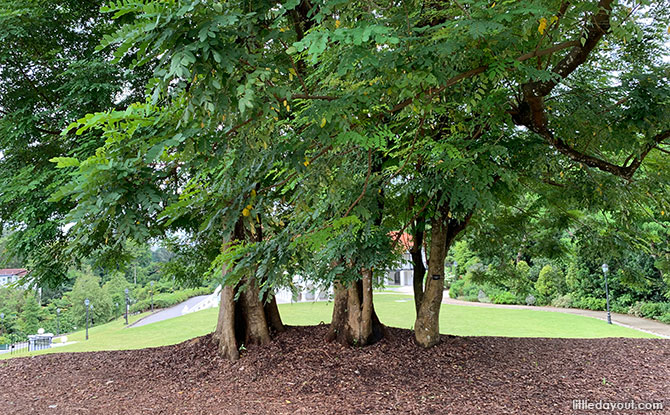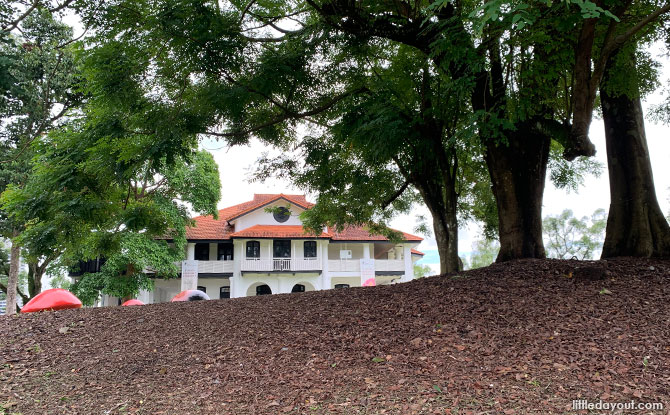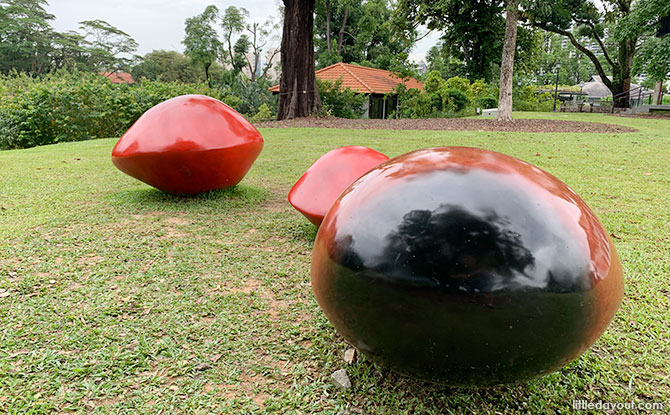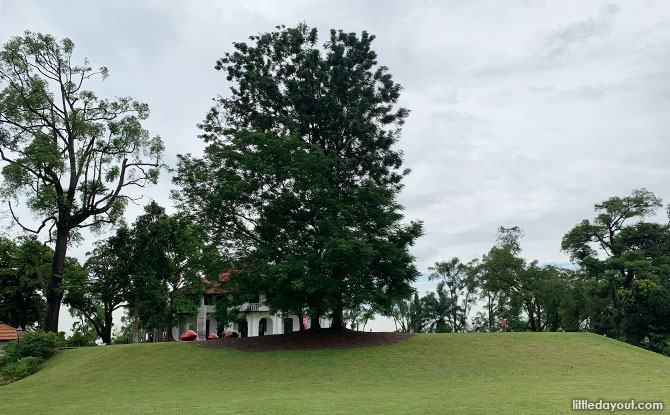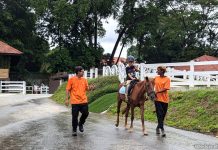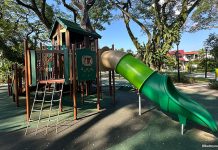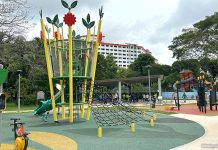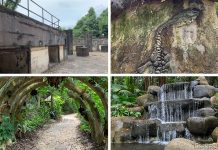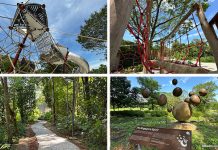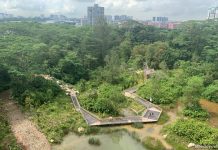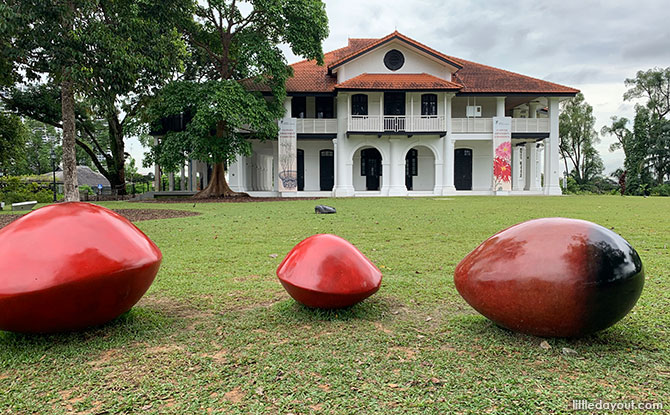
Pay a visit to the Forest Discovery Centre and Botanical Art Gallery at No. 5 and 7 Gallop Road and you will find a several larger-than-life saga seeds in between them. These mark out the location of the saga tree grove at the Gallop Extension of the Singapore Botanic Gardens.
Saga Tree Grove at the Gallop Extension, Singapore Botanic Gardens
The grove of saga trees, or Adenanthera malayan or Saga Daun Tajam trees, stand approximate halfway between the two old colonial houses.
CARNIVAL OF CHRISTMAS CHEER: Celebrate and Win at Plantation Plaza and Northshore Plaza!
SNOW MUCH TO CELEBRATE: Christmas Fun at The Centrepoint
Based on photographs taken by the British Royal Air Force in 1950, the saga tree grove has been present since the 1950s. This makes the trees of the grove 70 years old.
There are a total of 13 species of Adenanthera. They belong to the legume family and, like other legumes such as soybeans and peanuts, their seeds come in a pod.
There are two species of Adenanthera found in Singapore, the Adenanthera malayan and the Adenanthera pavonina.
Saga Seeds at SBG
Most of the time, when we think about saga trees, we think about its bright red seeds with their distinctive shape. These are actually only found in only three of the 13 species of saga trees.
The most recognisable of the species (and the one found in Singapore) with the all-red seeds is the Adenanthera pavonina.
Other species like the Adenanthera malayan have two-toned seeds instead. The seed has both the familiar glossy red finish and a black distal end.
Both these two types of seeds are represented in the trio of super-sized saga seeds beside the grove of trees.
In the past, saga seeds have been valued for their uniformity in weight and served as a way to measure gold and silver. The word “saga” is even said to have roots in the Arabic word for “goldsmith”. Saga seeds have also made into ornaments and jewellery. Kids would also collect them off the ground as little treasures.
The next time you are at the Gallop Extension, pay a visit to the saga tree grove and perhaps even look around on the ground to see if you can spot any saga seeds around.
What’s Nearby: Discover the story of Singapore’s forests at the Forest Discovery Centre.


